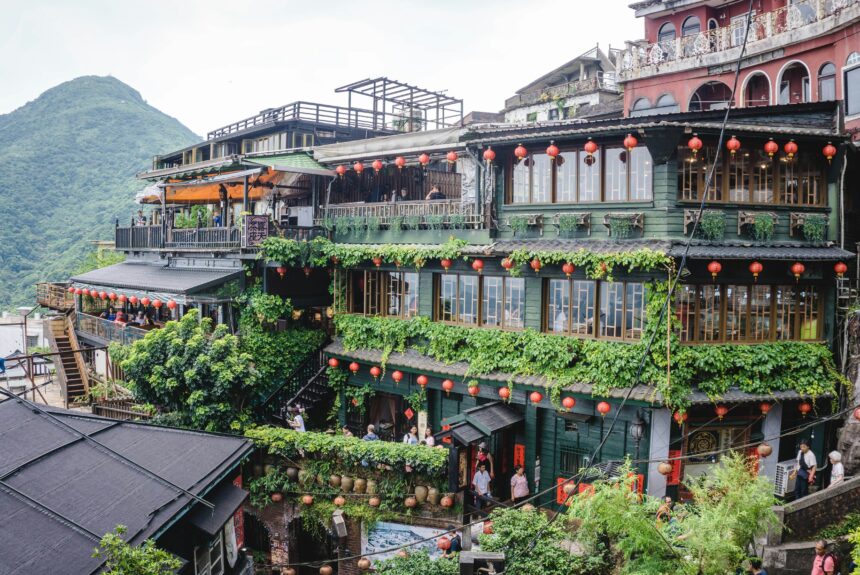As part of a series leading up to COP28, let’s look at the ways individual countries are showing leadership in green growth.
Not long ago, most countries just focused on the bottom line: Gross Domestic Product (GDP). A positive GDP meant a growing economy. But there is a new factor these days. Countries need economic development, but more and more people are demanding not just growth, but green growth. Countries, and their leaders in particular, are looking for ways to grow while having less impact on the environment. But what does green growth mean? And how do you measure it?
>>>READ: Economic and Environmental Lessons from Trinidad and Tobago
It’s important to consider that for something to be green, it must be sustainable: able to be sustained over a long period of time, and ultimately beneficial. No country can afford to invest in green energy if it leads to a weakened economy or national security. Sustainable green growth must thread the needle of improving a country’s economic, environmental, and national security. One without the others is not sustainable.
Many countries are succeeding at threading that needle. The solutions will look different from country to country, region to region, and continent to continent. Still, the best way to encourage green growth is by allowing people to live and work in economic freedom.
A country’s commitment to economic freedom results in more wealth and human progress, which increases the available resources and technologies to invest in environmental protection. Free economies are clean economies where people and the planet alike can flourish. This is true at the macro level, as our Free Economies Are Clean Economies report shows in great detail. At the micro level, however, economic freedom manifests in different ways.
Consider Taiwan, which is a consistent leader in economic freedom. It is one of only four economies to earn a rating of “Free” on the Heritage Foundation Index of Economic Freedom. “The island economy is ranked 2nd out of 39 economies in the Asia–Pacific region,” Heritage writes. Taiwan is putting into place plans that can contribute to a cleaner global future.
>>>READ: Economic and Environmental Lessons from Switzerland
One sector where Taiwan is moving forward is energy. “In 2022, renewables generated more than 23.8 billion kilowatt-hours of electricity and accounted for 8.3 percent of the nation’s total, up from 4.6 percent in 2017,” Taiwan Today reports. “Respectively making up 45 percent and 135 percent of average annual growth during the past five years, solar and offshore wind power are the fastest-growing green energy sources.”
The U.S government notes that “Taiwan plans to generate 20% of its energy from renewable energy by 2025, up from 5% in 2020. Overall policy calls for significantly less coal, more LNG, increased renewables and a ‘nuclear-free homeland.’” Taiwan Today adds that “additional power sources being explored include biogas, geothermal energy and marine currents.” We can nitpick, I suppose. Nuclear is a zero-emissions source of electricity that could help support an energy transition. However, Taiwan is clearly trying to tap into an array of sources rather than having the government pick a particular winner. This will create market competition and allow the best sources to prevail while also reducing emissions over the long term. That’s a win-win.
In every sector, deploying economic freedom will be key. The way to unlock the power of society and the private sector is by giving people the freedom to innovate. Strict federal mandates, such as those for electric vehicles, are a path to failure.
COP 28 begins November 30 in the United Arab Emirates. Because of objections from mainland China, Taiwan is not allowed to participate. That is unfair and reflects poorly on the countries that allow Beijing to call the shots. Taiwan is a free economy and a democracy that empowers its people and improves its environment. Nevertheless, Taiwan is sending local officials and observers to the conference to discuss its important mission. At least 11 such groups are already approved to attend.
As we have in recent years C3 Solutions will also be there to host events that promote the importance of economic freedom. Ours is a message of hope that balances the reality of the need for green growth that is truly sustainable. For the sake of people and the planet, let’s hope that leaders listen.
The views and opinions expressed are those of the author’s and do not necessarily reflect the official policy or position of C3.
